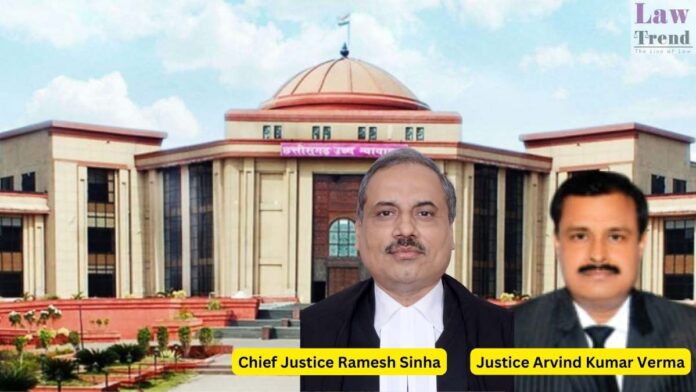The Chhattisgarh High Court has held that the presence of an earning member in the deceased employee’s family, even if allegedly non-supportive, is a relevant factor in assessing eligibility for compassionate appointment. The Division Bench of Chief Justice Ramesh Sinha and Justice Arvind Kumar Verma made this observation while dismissing Writ Appeal No. 223 of
To Read More Please Subscribe to VIP Membership for Unlimited Access to All the Articles, Download Available Copies of Judgments/Order, Acess to Central/State Bare Acts, Advertisement Free Content, Access to More than 4000 Legal Drafts( Readymade Editable Formats of Suits, Petitions, Writs, Legal Notices, Divorce Petitions, 138 Notices, Bail Applications etc.) in Hindi and English.




